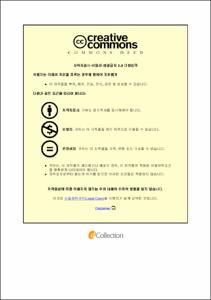심장이식 수혜자에서 Everolimus의 심장 동종이식 혈관병에 대한 효과: Cyclosporine 기반 및 Tacrolimus 기반 protocol과 비교 연구
- Abstract
- Background
Previous studies have reported the superiority of everolimus (EVL) over antimetabolites in mitigating cardiac allograft vasculopathy (CAV) after heart transplantation (HT). However, data on the long-term effect of de novo EVL immunosuppression on CAV progression and clinical outcomes are lacking.
Objective
The aim of this study was to determine the long-term safety and efficacy of EVL as de novo immunosuppressant therapy on CAV progression and outcomes after HT.
Methods
We retrospectively reviewed the medical records of 144 HT recipients (EVL group = 24, Cyclosporine (CSA) group = 48, Tacrolimus (TAC) group = 72) who survived at least at 1 year after HT. Treatment failure defined as all-cause death, graft failure, retransplantation and treatment requiring rejection was evaluated. CAV progression was assessed using serial coronary intravascular ultrasound (IVUS) in recipients who underwent at least 2 IVUS studies.
Results
A significant attenuation in percent atheroma volume progression was observed with EVL (1.2%) compared with CSA (7.3%; p = 0.005 vs EVL) or TAC (6.6%; p = 0.0052 vs EVL) at 1 year after HT, and this trend has remained unchanged for 3 (4.7% vs 12.4% vs 12.5% for EVL vs CSA vs TAC respectively, p = 0.006) and 5 (7.9% vs 14.9% vs 14.9% for EVL vs CSA vs TAC respectively, p = 0.02) years after HT. The remodeling index was greater in the EVL (1.08) group than in CSA (0.23) or TAC (-0.25) groups at 1 year after HT. Kaplan-Meier analysis over a median follow-up period of 8 years did not show a statistical difference in primary endpoint event-free survival between three groups. No death or re-transplantation occurred in the EVL group while 10 (21.8%) and 14 (20.6%) occurred in CSA and TAC group respectively.
Conclusions
De novo immunosuppression with EVL is associated with attenuated CAV progression during 5 years of IVUS follow up and with comparable long-term clinical outcomes compared with CSA or -TAC based protocols.
|배경: 이전 연구에서 심장 이식 후 발생하는 동종 이식 혈관병증 (Cardiac allograft vasculopathy, CAV)의 진행을 완화하는데 대한 antimetabolite 대비 everolimus (EVL)의 우월성이 보고된 바 있다. 그러나 de novo EVL 면역억제 프로토콜이 CAV의 진행과 임상 효과에 미치는 장기적인 영향은 보고된 바 없다.
연구 목적: 본 연구를 통해 de novo EVL 면역억제 프로토콜이 CAV의 진행과 임상 경과에 미치는 장기적인 효과와 안정성을 확인하고자 하였다.
연구 방법: 심장이식 후 적어도 1년 이상 생존한 144 명의 심장이식 수혜자 (EVL군 24명, Cyclosporine (CSA)군 48명, Tacrolimus (TAC)군 72명)의 의무기록을 후향적으로 분석하였다. 사망, 이식심의 상실, 재이식 및 치료가 필요한 거부 반응으로 정의된 치료 실패를 1차 연구종료점으로 평가하였다. CAV의 진행은 최소 2회 이상 혈관내 초음파를 시행한 수혜자에서 연속적 혈관내 초음파 영상을 비교 분석하여 평가하였다.
결과: 심장이식 후 1 년째 혈관내 초음파 상에서 CSA군 (7.3 %, p = 0.005 vs EVL) 이나 TAC군 (6.6 %; p = 0.0052 vs EVL)에 비해 EVL군 (1.2 %)에서 % 죽상경화반 증가에 대한 유의한 감쇠가 관찰되었으며, 이 감쇠 효과는 심장이식 후 3년 (4.7% vs 12.4% vs 12.5% for EVL vs CSA vs TAC, p = 0.006)과 5년 (7.9% vs 14.9% vs 14.9% for EVL vs CSA vs TAC, p = 0.02)째 혈관내 초음파에서도 유의하게 유지되었다. Remodeling 지수는 EVL군에서 1.08로 CSA군의 0.23과 TAC군의 -0.25에 비해 높은 것으로 관찰되었다. Kaplan-Meier 분석 결과 8년의 추적 관찰 기간 중 세 그룹 간의 1차 연구종료점 발생에는 통계적으로 유의한 차이가 없었다. EVL군에서는 사망 또는 재이식이 발생하지 않았으며 CSA군과 TAC군에서 각각 10명 (21.8 %)과 14명 (20.6 %)에서 사망 또는 재이식이 발생하였다.
결론: De novo EVL 면역억제 프로토콜은 5년째 혈관내 초음파 상 CAV 진행의 감쇠와 관련이 있으며, CSA 또는 TAC 기반 면역억제 프로토콜과 비교하여 유사한 정도의 장기 임상 결과를 보인다.
- Issued Date
- 2019
- Awarded Date
- 2019-02
- Type
- Dissertation
- Alternative Author(s)
- Hyo-In Choi
- Affiliation
- 울산대학교
- Department
- 일반대학원 의학과
- Advisor
- 김재중
- Degree
- Doctor
- Publisher
- 울산대학교 일반대학원 의학과
- Language
- eng
- Rights
- 울산대학교 논문은 저작권에 의해 보호받습니다.
- Appears in Collections:
- Medicine > 2. Theses (Ph.D)
- 파일 목록
-
-
Download
 200000175259.pdf
기타 데이터 / 1.3 MB / Adobe PDF
200000175259.pdf
기타 데이터 / 1.3 MB / Adobe PDF
-
Items in Repository are protected by copyright, with all rights reserved, unless otherwise indicated.